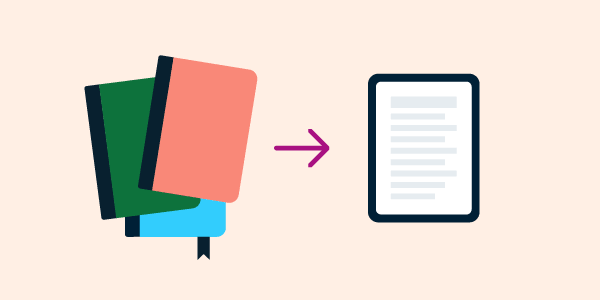
Reading is among the first skills we develop in school. We harness this skill throughout our life ― when driving to the office (yes, we read traffic signs), when processing our emails or digesting a report, when browsing the news, when checking social media and the list goes on. We barely see reading as an act that ignites our passion or changes our life.
To read or not to read?
Our ultrafast world offers way more information than we could ever proceed, but picking up a book always adds value to our lives. Remember back in the good old days when you read your first novel or your colourful book on dinosaurs? How did you feel about it? What kind of memories do you have deep in the heart? We are all avid readers ― or rather “maybe-one-time-avid-readers” ― and are waiting for the right time, place and cue.
Productivity leaders and successful people ― whatever it means ― make reading central to their lives and mornings. The late Stephen Covey identified reading as a method of, as he put it, “sharpening the saw” to advance our spiritual and mental well-being. Hal Elrod, author of the “Miracle Morning,” lists reading among the Life S.A.V.E.R.S., where “R” stands for reading.
When we think of reading a book, we all have a physical book projected in our mind with all the associated texture, scent, dimensions and visuals. These are the elements that make a book a distinct entity, something very special, something to be remembered. And we lack all of those properties when switching to eBooks, right? If your answer is yes, please consider the following benefits an eBook can provide.
Here are 7 reasons to switch to eBooks:
1. Immediate delivery
This is a minor benefit. eBooks are delivered immediately upon purchase. The drawback is that you miss the charm of a large bookstore.
2. Lower costs
You can calculate with a reduced cost as compared to traditional books. You can save up to 75% when purchasing an eBook on Amazon: first, eBooks cost often half the price of the hardcover versions, and second, shipping expenses can add up to the full cost of the book. Your expenses, of course, may vary depending on the publisher, your address and the market.
3. Less demand for place
This is one of the most important benefits. eBooks do not take up any space other than your hard disk. This is a huge benefit over traditional books especially if you are an avid reader and have limited storing capacity. eBooks stored in the cloud do not even consume space on your hard drive and last literally forever.
4. Easy to carry
eBooks can be carried even in your pocket, which is particularly useful if you take your books while commuting. It is much more comfortable to carry your eBook reader and flip pages using gestures than to hold a 300-page hardcover edition when you are traveling on a train with fellow passengers hanging around you.
5. Cross-platform
eBooks are supported on all platforms from mobile devices to computers to eBook readers. Left home? Needs charging? Just pull out your mobile device or iPad and pick up reading. Please note that you may need internet connection to continue reading on a mobile device.
6. Note-taking option
This is the real benefit here. Most of the time, books contain a lot of information and advice you might want to build on later. Taking notes with a pen or using sticky notes may work but attaching notes right to the book is a more powerful tool. Even if you are reading fiction, you may find it rewarding to highlight nice phrases and quotes. If you are a language learner, you may find Kindle’s built-in offline dictionary particularly useful. Alternatively, you could highlight collocations and save them in a notebook for future reference.
7. Exporting notes
Even if eBooks could not provide any of the above-mentioned opportunities, the exporting function alone could convince the reader to switch to eBooks. As addressed under #6, you can highlight text and take notes as well. If you are using a Kindle device, you can export all of your notes and highlights into a single PDF file or Excel sheet, all delivered by a single email to your account. This is the most powerful service an eBook can provide.
You can then make a book summary for yourself. Create a mind map of the main takeaways to revisit them in the future. You can also make an action list to implement the advice in your life. If you are a language learner, you might find it useful to gather the highlighted collocations and phrases and save them to future reference. You can then revisit your “collocation library” every Friday or whatever day fits to your schedule.
Becoming an avid reader
We witnessed the dawn of audiobooks. More and more people are listening to audiobooks while jogging in a forest trail or driving to work. This is another option that you might consider. Please note that by choosing a new platform for reading, you are more likely to succeed in evolving from a maybe-one-time-avid-reader to an every-morning-30-minute-reader. Give it a try tomorrow. By the time you have finished reading your first eBook, you will be comfortable with the screen and will be proud of yourself that you may be the only passenger on the train who reads a book at 6:00 in the morning.
In his book “The Power of Habit,” Charles Duhigg argues that all habits are formed within a habit loop. The habit is initiated by a cue ― it can be a location, a time, an immediately preceding action that ignites the routine, which is the second element of the loop. The routine is the desired action itself that you want to make into a habit. Each routine ends with a reward (third element) that cements the habit. The author suggests that we should have a plan and isolate the cue.
You can make that happen by carrying your Kindle and using the train (location) as a cue. Each time you are on board, just pull out your eBook reader and start reading. Some 30 days later, you will notice that you pull out your device automatically and feel uncomfortable when you run out of books.
Whatever platform you choose, find your time to read. Reading while you are exercising or commuting, or reading before bedtime are great options. It is best to make reading a habit by practicing it every single day and to find the right cues.
Track your progress
It is highly recommended that you track your reading habits until they are cemented. There are lots of dedicated apps out there, but a simple Excel sheet or a printed calendar would do the trick as well. I find the best way is to track my habits in a dedicated Evernote journal. You can download the monthly calendars from the Evernote webpage for free and then insert a checkbox into each entry. You can then save this note into the shortcuts to access it every evening so as to check off your commitments. Try not to break the cycle.
You might not need to track your habit any further when you feel you are good with it. It will take some 30-60 days to establish the habit.
Final thoughts
This post does not claim that the era of physical books has finished. Physical books are amazing! It all depends on your circumstances ― whether you are reading on the train, whether you are reading fiction or business books, whether you want to harness technology or whether you are a language learner. If you aim to collect your own library, do it.
Finally, you might argue that eBooks emit blue light and thereby delay sleep onset. To address this issue, you can get a blue light filter for your Kindle device that blocks blue light if you read right before bedtime. Maybe it is best to pick a physical book, say a fiction, before bedtime to boost your sleep, and then take your Kindle on the morning train to consume a book on personal development, and then listen to an audiobook when you are in the gym after work. Whatever form you choose, keep reading and growing in mind and spirit.




